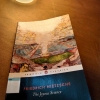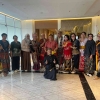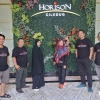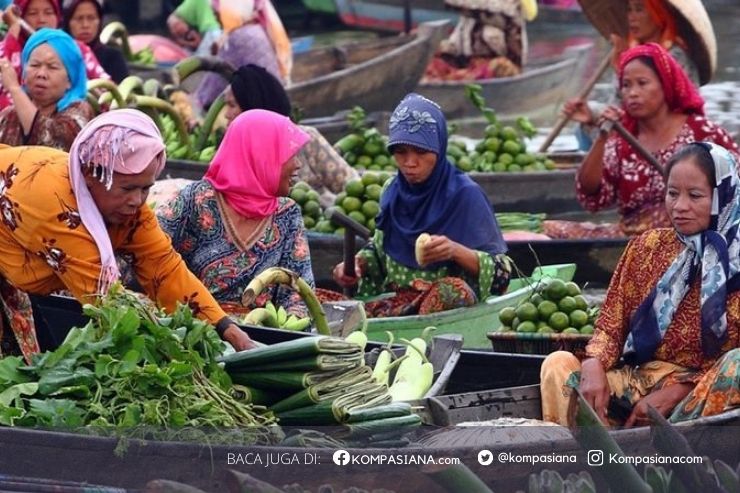Over the past decade, Korean popular culture has spread infectiously throughout the world. The term, “Korean wave,” has been used to describe this rising popularity of Korean popular culture. The Korean wave exploded in the media across the world generating a ripple effect. The Korean government took full advantage of this national phenomenon and began aiding Korean media industries in exporting Korean pop culture. This global expansion has contributed to enhancing South Korea’s national image and its economy and has been seen as a tool for public diplomacy.
The term ‘Korean Wave’, also ‘known as Hallyu or Hanryu, refers to the increase in the popularity of South Korean entertainment and culture in the late 1990s in Asia, and more recently, in other parts of the world. For instance, movies, TV dramas, and pop music. They are not only popular in terms of the fanaticalness of audiences and fans, but also bring considerable profit to the national income. The Korean wave brings a different level of Korean fever in certain East Asian countries, such as China, Hong Kong, Taiwan, Singapore, Japan, Indonesia and the Philippines.
K-pop is a unique genre of music that is performed by boy bands or girl groups, and is also characterized by synthesized beats, synchronized dance routines, and fashionable outfits. K-pop groups, such as Girls Generation, 2PM, Wonder Girls, and Super Junior, attracted millions of teenagers in Asia. According to Korean Creative Industry Research Institute, K-pop accounts for “more than half of imported music sales in Thailand,” and other Southeast Asian countries pay a lot more to import Korean music than they do for other foreign music. Also, a research provided by Asian Pulse magazine reveals that “the combined net income of South Korea’s three major music agencies grew more than eight-fold from a year earlier to US$28.6 million in 2010.” The three industry giants – SM Entertainment Co., JYP Entertainment Corp., and YG Entertainment Co. now have a large economic and cultural impact in Asia, generating positive publicity across Asia.
In addition, by the end of 2011, the total number of YouTube views generated by K-pop (Gangnam Style) videos had surpassed the 1 billion mark, tripling from 800 million in the previous year to more than 2.3 billion while spurred on by huge growths in Europe and the Middle East.
The existence of the Korean Wave can be a good thing. It brings some new knowledge and information such as Korean language and culture. The Korean people’s sense of community, diligence and good manners as seen in South Korean TV dramas and movies also can give positive influence. On the other hand, it can also have a negative impact on the existing culture. We can see the bad impact of the Korean wave in the way that people leave their traditional cultures and move to learn Korean culture.If they prefer Korean culture rather than their own they may forget their heritage. For example, “boy bands and girl bands” arise in Indonesia, and gained popularity.
The Korean Wave trend has helped people in other countries take greater interest in Korean food by allowing them a glimpse of Korean traditions and food. Among other things, A Jewel in the Palace featuring traditional Korean food played a major role in bringing these changes to Malaysia. In actuality, five new Korean restaurants named “Daejanggeum” (A Jewel in the Palace) have opened in Kuala Lumpur. Thanks to the boom of the Korean Wave trend, exports of kimchi to Taiwan, Hong Kong and Malaysia have largely increased, with the volume of kimchi export to Malaysia increasing 150 percent (Joongang Daily, Nov. 10, 2005).
The Korean Wave trend may bring changes to people way of thinking and mode of living by allowing them to have access to the Korean way of thinking and living. Some claimed that the television series promoted “decadently luxurious life” and advocated “money worship” by showing girls in glamour with Gucci bags while the boys drive flashy BMWs. In addition, Korean way of dressing can influence the youth to dress like them which is against the norm/value (Southeast Asian case). The example demonstrated that TV shows could be used as tools to spread cultural value, which in this case would be relationships, fashions, money and fame. Therefore, audience with unstable values can easily be influenced by those values portrayed in media.
Teoh Chit Hwa, a Malaysian resident who has caused a stir by announcing his donation of internal organs after death, was reportedly influenced by a South Korean TV drama. Health Ministry parliamentary secretary Datuk Lee Kah Choon said superstitious beliefs had been hampering efforts to get people to donate their organs. When the media highlighted Chit Hwa’s noble act, it created a lot of public awareness on organ donation (The Star, Jan. 5, 2006).
Lastly, I think the people of imperialized country should make up their minds and realize that loving things Korean is their right but loving their own culture is an obligation.Hence they should take action to keep their cultures alive in this era of globalization. In this case, education has an important role in saving our cultures.Educating the younger generation and society to love their cultures early on can aid people to build their nationalism and be proud of their cultures.











